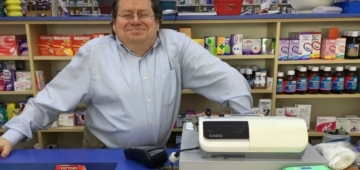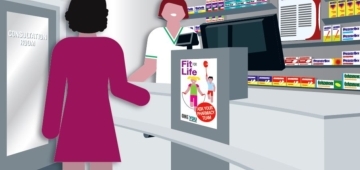- 02 April 2019
It has been reported by the BBC that pharmacies should have greater influence on health inequalities in their community. RSPH has been advocating for transition away from top-down public health messaging for the last ten years and are now calling for pharmacies and local authorities to work together to act on health inequalities in their local community.
The report, compiled by researchers at Durham University and published in BMJ Open journal, suggested that 89% of England’s population lived within a 20 minute walk of a pharmacy, and that in deprived areas the proportion was nearly 100%.
Shirley Cramer CBE, Chief Executive of RSPH stated: “We fully believe in the potential for pharmacies to offer a wide range of health improvement services.The link between socio-economic deprivation and low health outcomes has long been acknowledged with people living in poorer areas being at higher risk of preventable illnesses including obesity, heart disease and Type 2 diabetes. Gaining access to these groups in order to offer valid health improvement advice has always been a challenge, yet pharmacies, with their established position in local communities, offer a convenient, accessible setting in which to promote positive health messages on a variety of issues from drug addiction to weight management services and provide unique access to groups often under-represented in primary care
“There are already over 2,000 Health Champions, trained in RSPH qualifications, delivering positive health improvement messages in local pharmacy’s across the country. It has been proven in small scale pilots in that this type of intervention is both influential and cost effective, for instance, a pharmacy in Portsmouth was able to deliver 140% increase in successful ‘quits’ through their smoking cessation service while another pharmacy in London had high attendance for their methadone and needle exchange service
“Having a more flexible approach to how public health services are delivered can really help to address the some of growing challenges we are facing surrounding health inequality and at RSPH, we will continue to promote and support any measures capable of empowering communities to live healthily.”



